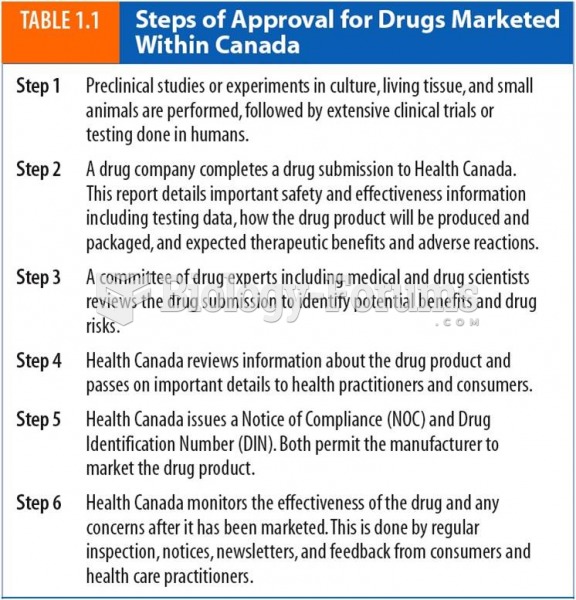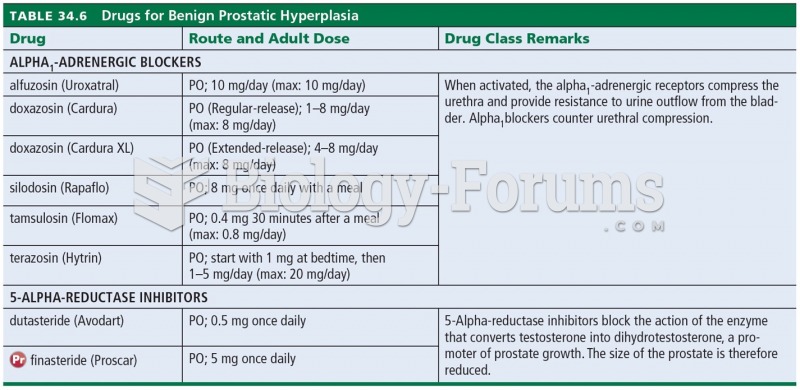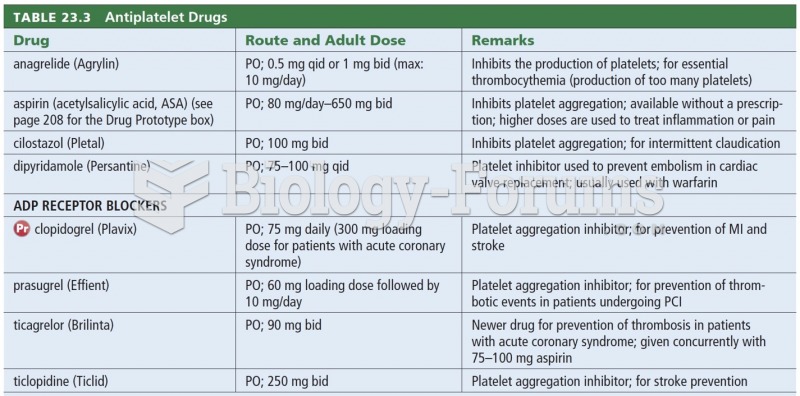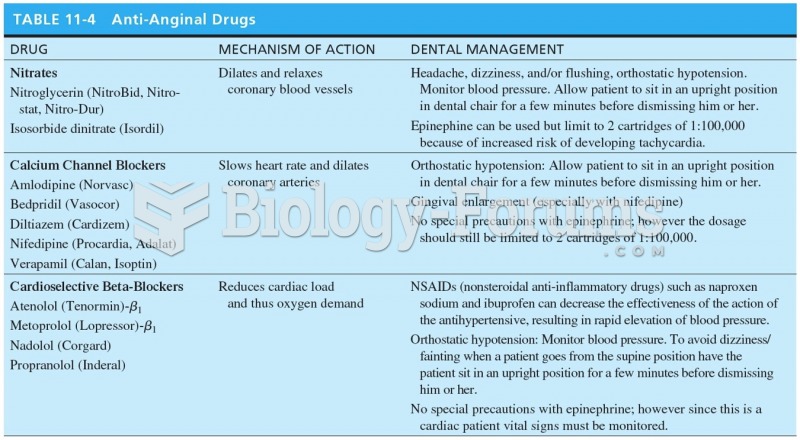|
|
|
Street names for barbiturates include reds, red devils, yellow jackets, blue heavens, Christmas trees, and rainbows. They are commonly referred to as downers.
There can actually be a 25-hour time difference between certain locations in the world. The International Date Line passes between the islands of Samoa and American Samoa. It is not a straight line, but "zig-zags" around various island chains. Therefore, Samoa and nearby islands have one date, while American Samoa and nearby islands are one day behind. Daylight saving time is used in some islands, but not in others—further shifting the hours out of sync with natural time.
This year, an estimated 1.4 million Americans will have a new or recurrent heart attack.
After a vasectomy, it takes about 12 ejaculations to clear out sperm that were already beyond the blocked area.
Increased intake of vitamin D has been shown to reduce fractures up to 25% in older people.







